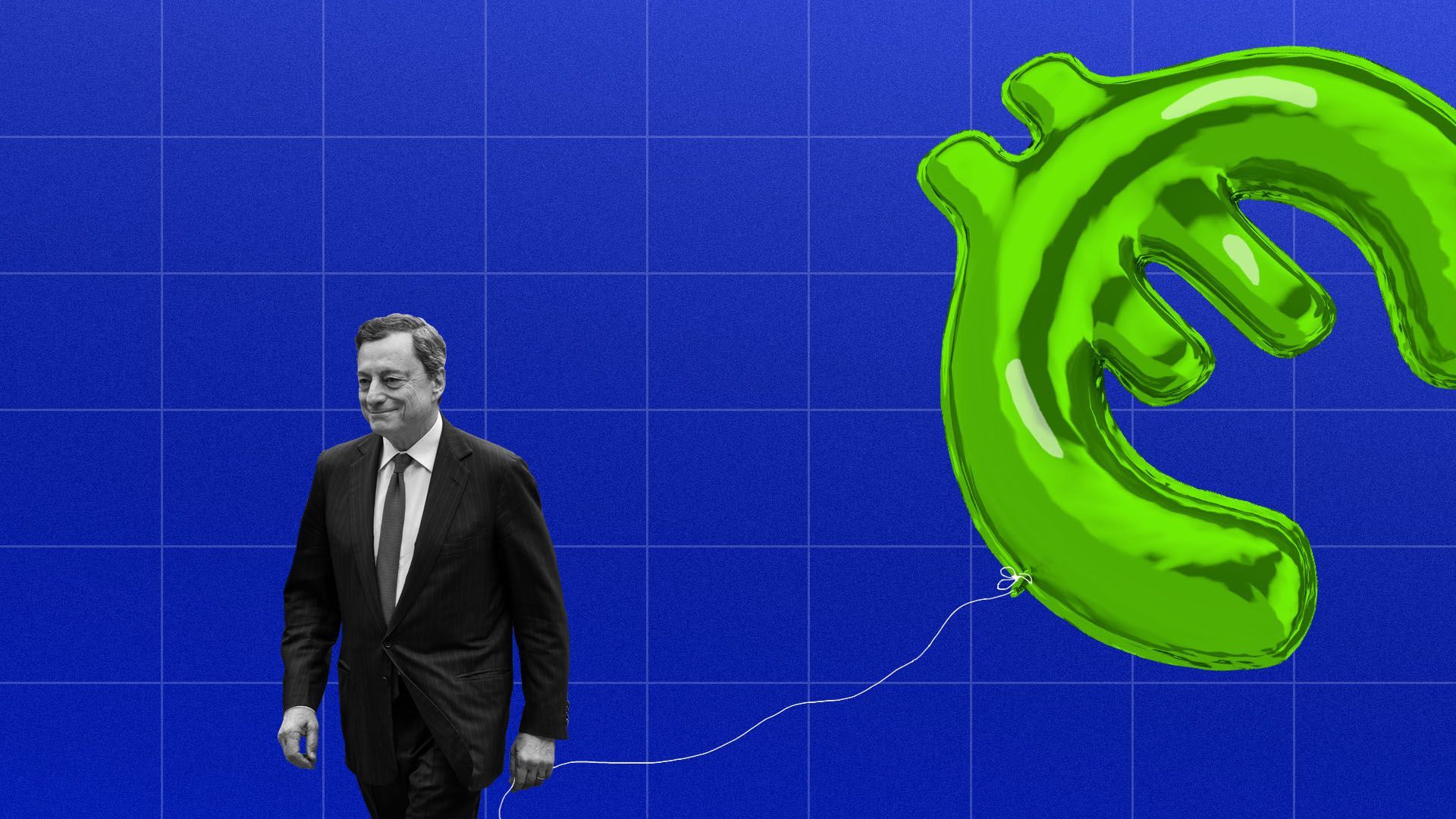The ECB likes inflation now
Add Axios as your preferred source to
see more of our stories on Google.

Illustration: Sarah Grillo/Axios
The European Central Bank [ECB] is the oldest inflation target in the world, and certainly the one that carries the most political baggage. This week, with very little fanfare, it changed dramatically.
Background: Germany's Bundesbank implemented an inflation target in 1975 — a full 15 years before New Zealand's target was formally adopted. Germany's target started at 4.5%, but it rapidly fell to 2% in 1987, and was never subsequently changed.
- Over the course of the postwar era, Germany's strong currency and low inflation played a proud and central role in the country's national identity. That was all thanks to the Bundesbank, which had one primary function — to safeguard the currency. Germany's target wasn't enshrined in law, like New Zealand's was, but it helped to shape a nation.
- When the Deutsche mark was replaced by the euro, the ECB inherited the Bundesbank's 2% inflation target. That target, then, has now been in place for 32 years.
For all those 32 years, the inflation target has been a ceiling: The aim of the central bank was to get inflation down to 2% or lower. If inflation in Germany was 3%, that marked a failure on the part of the Bundesbank. If inflation was 1%, that was fine.
Driving the news: The official ECB statement accompanying its latest monetary policy decision this week included an important new word. "If the medium-term inflation outlook continues to fall short of our aim," it says, "the Governing Council is determined to act, in line with its commitment to symmetry in the inflation aim."
What they're saying:
"The symmetry means basically that there is no cap, or 2% cap, and that inflation can deviate on both sides. We don't accept permanently lower inflation rates,"— Draghi, in his post-meeting press conference.
No Bundesbank president would ever have said something like "We don't accept permanently lower inflation rates." Quite the opposite. Permanently lower inflation rates were the German central bank's stated aim, and the ECB largely inherited that aim. That's now, officially, a thing of the past.
Why it matters: ECB president Mario Draghi is painfully aware that ultra-loose monetary policy — like the deposit rate of -0.4%, which still has the power to startle — has done little to spark inflation in the eurozone. He knows too that his successor, Christine Lagarde, will need to use all her political skills to cajole Europe's governments into providing fiscal support for her monetary actions. With this action, he has given Lagarde all the headroom she needs to keep monetary policy as loose as she possibly can, even if inflation exceeds the 2% target.
